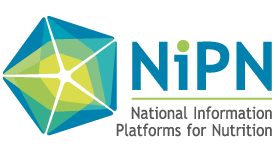Finalising and validating questions
-
STEP 4: Prioritise and validate questions
Objectives:
- To finalise the priority ranking of policy-relevant questions, with appropriate justification and explanation regarding the policy priority of questions that will be analysed by the NIPN team.
- To obtain validation of this final priority ranking by the Multisectoral Advisory Committee (MAC), who will ensure transparent communication of these decisions to the broader set of stakeholders.
*****Activities:
- Activity A: Validation of the final priority list of questions by the Multisectoral Advisory Committee.
*****Outputs:
- Document with final list of priority policy questions and justification.
***** -
Activity A: Validation of the final priority list of questions by the MAC
In each of the three previous steps to formulate policy questions, criteria were applied to define the priority ranking of the questions. This final fourth step is important for formalising the decision on the priority ranking of questions and notably those questions which will be addressed/answered by NIPN analysis.
Furthermore, transparent communication about this decision to the NIPN stakeholders which were directly involved in the various steps is crucial. These stakeholders are, for the most part, the ultimate audience to whom the findings of the analyses will be communicated for further action.At the same time, a number of the relevant and important questions which have been formulated will not be eligible for analysis by NIPN. These should be saved to a ‘Question Bank’ that will be managed by the NIPN team (see text box below). Expectations must be managed as certain questions may not or never be answered.
It is recommended that each step and decision is documented in a transparent manner, which will also help to manage the various stakeholders’ expectations:
- Document the final list of policy questions which have been formulated during the previous three steps, in order of priority ranking, with the questions for analysis by NIPN at the top, followed by the questions which can be answered by other actors, etc.
- Archive the data analysis framework for the priority questions that NIPN will answer.
- Request that the MAC validates this list of questions in an official meeting with a formal sign-off. This validation is equally important in order to obtain approval for data access from data owners.
- The MAC will communicate their decision formally to all NIPN stakeholders, including a tentative timeline for the analysis of the priority questions.
*****Maintain a "Question Bank" It is recommended that a ‘Question Bank’ is maintained over time - this is a list of all questions which have been formulated by stakeholders, ranked according to the prioritisation criteria. In this way, the NIPN team keeps track of all questions, their feasibility and how they have been managed or analysed.The ranking of the questions constitutes the basis for dialogue with the NIPN stakeholders, in particular through the MAC. Questions will be ranked according to their priority: meaning that the priority questions which can be answered by NIPN come first, followed by the important questions which cannot be answered by NIPN but which could be passed on to other actors or in-country fora to be answered (e.g. by doing a literature review or research or new data collection), and finally the questions which are considered to be of a lower priority, and will not be the focus of NIPN or another actor’s analysis.
The Multisectoral Advisory Committee (MAC) may request other nutrition actors to take on the task of answering some of these questions, or even to collect new data to answer a question of policy importance. For instance, the MAC may ask a member of the SUN Civil Society network to carry out a literature study to compile global evidence on a specific topic (e.g. the effectiveness of distribution of micronutrient powders) or it may request a research institute to study the impact of specific nutrition-sensitive agriculture interventions on the dietary diversity of women.Transparent ranking of the questions in a ‘Question Bank’ will help to manage the expectations of a diverse set of stakeholders and contributes to a common understanding of what NIPN can and will do.
*****


